
THE GREAT LATIN AMERICAN NOVEL
The Great Latin American Novel
CARLOS FUENTES
Translated from the Spanish by Brendan Riley
 DALKEY ARCHIVE PRESS
DALKEY ARCHIVE PRESS
Originally published in Spanish as La gran novela latinoamericana by Alfaguara in 2011.
2011 by Carlos Fuentes
Translation 2016 by Brendan Riley
First edition, 2016
All rights reserved
Library of Congress Cataloging-in-Publication Data
Names: Fuentes, Carlos, author. | Riley, Brendan, translator.
Title: The great Latin American novel / by Carlos Fuentes ; translated by Brendan Riley.
Other titles: Gran novela latinoamericana. English
Description: 1st ed. | Victoria, TX : Dalkey Archive Press, 2016. | Originally published as La gran novela latinoamericana (Madrid : Alfaguara, c2011).
Identifiers: LCCN 2015040718 | ISBN 9781628971309 (pbk. : alk. paper)
Subjects: LCSH: Latin American fiction--History and criticism.
Classification: LCC PQ7082.N7 F78513 2016 | DDC 863/.009--dc23
LC record available at http://lccn.loc.gov/2015040718

Partially funded by a grant by the Illinois Arts Council, a state agency
This book is, in part, made possible through the generous support of the University of Houston-Victoria.
Dalkey Archive Press
Victoria, TX / McLean, IL / Dublin
www.dalkeyarchive.com
Typesetting: Mikhail Iliatov
Printed on permanent/durable acid-free paper
CONTENTS
For Silvia, my wife.
For Cecilia, Natasha, and Carlos, my children.
1. Pre-Iberian Foreword
One of the great thinkers of our time, the Mexican comedian Mario Moreno, better known as Cantinflas, once silenced a man with whom he was arguing with this rejoinder: Alright, enough already; the problem here is obviously your lack of ignorance!
Cantinflas was a master of the paradox, and his comical retort contains a profound truth. Our world conceals an unwritten culture, one expressed through memory, oral transmission, and the cultivation of tradition. In order to understand itas Cantinflas rightly believedone needs a touch of ignorance.
In the early twentieth century, upon concluding his study of Andalusian peasants, the Spanish philosopher Jos Ortega y Gasset exclaimed: These illiterate folks are actually quite cultured! The same sort of thing might be said today about many groups of peasants and indigenous peoples in Indo-Afro-Hispanic America: Despite their illiteracy, these people are incredibly cultured!
Cantinflas was praising an ignorance which is perhaps synonymous with traditional, ancestral, unwritten wisdom. What is ignorant for us is actually, in these oral, retentive, unrecorded cultures, wise, and we are the ones ignorant of it.
I say this in order to establish from the outset the idea that proximity and access to words and speech is neither exclusive nor restrictive. Language is, at times, like a great flowing river, at other times barely a stream, but always the master of its channel, which is orality: Do you remember?, Good morning, I love you so much, Whats for dinner?, See you tomorrow. This whole profuse current of orality runs between two shores: memory and imagination. He who remembers, imagines. He who imagines, remembers. Language, oral or written, forms the bridge between these two shores.
I would like to consider literature in the broadest possible terms: when not being hounded and banned by political tyrannies, it is all too frequently limited and impoverished by ideological restrictions.
The various literatures of the American continent begin (and are kept alive) in the epic, ancestral, and mythic memory of its indigenous peoples. Americathe name that signifies the contiguous continental geography from Canada to Tierra del Fuego: North America, Central America, and South America all togetherwas once uninhabited. Then, descending from Asiatic or Polynesian origins, our indigenous population emerged and spoke the first words heard in this hemisphere. The Mayan Popol Vuh of the Kiche kingdom recalled the creation of the world, while the Chilam Balam foretold its destruction. In the ages between origin and apocalypse the indigenous world resounded with beautiful songs of love and instruction as well as bellicose tones of combat and bloodshed.
These words have been perpetuated through the centuries in oral tradition, from the Pueblo Indians of the North to the Mapuche of the South. Their rhythm, their memory, and perhaps their melancholy, underlie the Spanish-language literature of America, a written literature which stands in contrast to the orality prevalent in these societies before Columbus and Vespucci.
Jos Luis Martnez explored the multiplicity of American cultures and languages, as well as the themes that were central to them prior to the arrival of the Europeans. He began with Alaska: Eskimos and their deep lore about the creation of the Earth and the stars, and their early, urgent questions about life and death. The Kutenai of Canada with their songs to the Sun and the Moon. The Nez Perc of Oregon and the Pawnee of Nebraska and Kansas, religions of ghostly marriages and prodigal sons. The Natchez of Louisiana and the creation of the world. The Navajo of Arizona and the tension between nomadic rootlessness and domestic rootedness. And the Cora people of Nayarit, in the place we now call Mexico, who reconfigured the rituals of Holy Week and the figure of Christ brought by the Spanish, according to their own understanding and imagination, into celebrations about the creation of the world and the Creator who existed even before the world itself. The Tarascan of Michoacn and the death of the different indigenous peoples. The Mixtec of Oaxaca and the origin of the world, a constant preoccupation of these peoples who lived so much closer to the origin of things: the Cuna of Panama remembering how man learned to cry; and in South America, the Choc of Colombia and their memory of the universal flood; the Chachi and their legends of the dream; the Spara people of Brazil and how they spoke with the animals of the jungle. Also in Brazil, the love and dancing of the angat. The Chilean Mapuche and the rebellion of the children of God. The Guarani of Paraguay and their memory of the first father. All of these peoples alongside the great leading cultures: the Toltecs and the Nahuatl in Central Mexico. The Olmecs, the original peoples of the Gulf Coast, who were, for a time, misclassified in the Veracruz Museum of Anthropology. The Maya in the Yucatan, and the Quechua in both Peru and the Central Altiplano of South America.
Orality and corporality, architecture and music: Enrique Florescano tells us that these ancient peoples employed these arts as a way to express their culture, preserve it, and hand it down through the ages. And if these artifacts and remnants have survived to reach us today, it is because these peoples intuited the hereditary and survivalist power of language, body, and perception.
In Mexico, out of a total population of more than one hundred twenty million inhabitants, some sixteen million are indigenous. While they are increasingly educated within the general mestizo current, the majority of them retain their original languages, which number over forty, as different from one another as Swedish is from Italian.
To travel to the lands of the Huichol people in Jalisco, or the Tarahumara in Chihuahua, the Nahuatl in Central Mexico, the Zapotecs in Oaxaca, or the Maya in the Yucatan is to discover that, even when they are illiterate, indigenous people are far from ignorant, and even when they are poor, they are not culturally impoverished. They possess an extraordinary talent for remembering or imagining dreams and nightmares, cosmic catastrophes and dazzling rebirths, as well as the minute details of daily life, a childs first words, the stupid jokes of the village idiot, the faithful family dog, favorite foods, the passing of their grandparents.
Next page
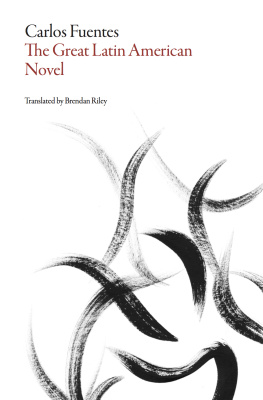
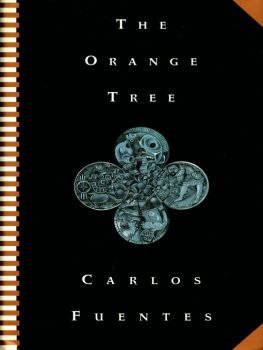
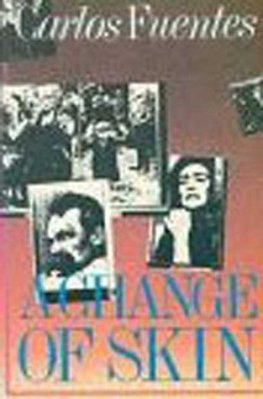

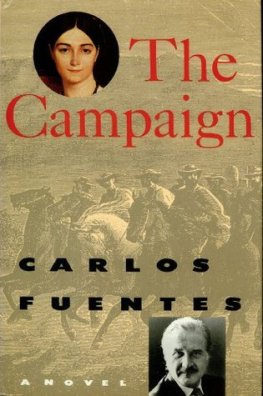
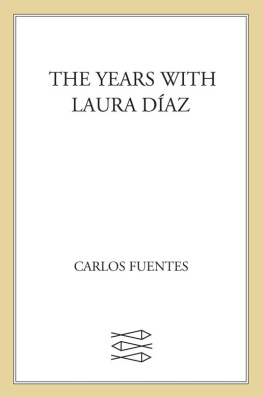
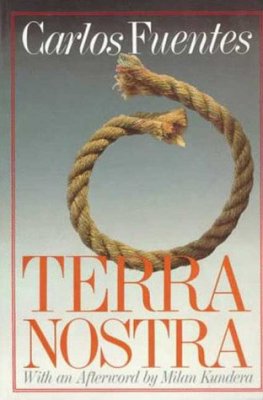
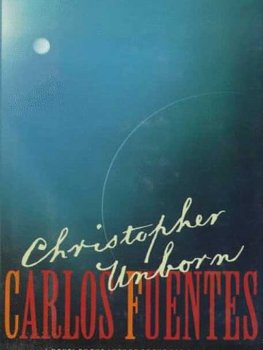


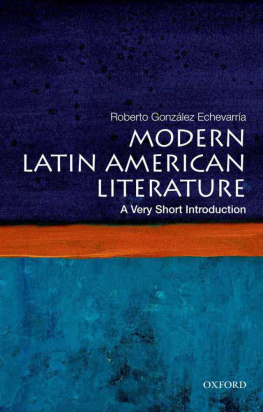
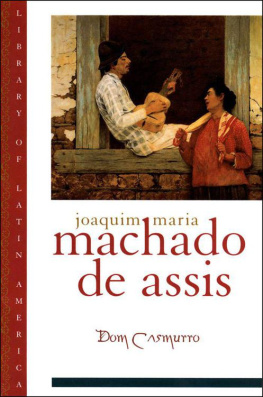
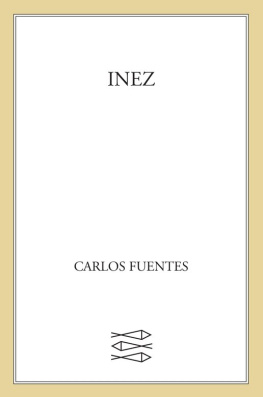

 DALKEY ARCHIVE PRESS
DALKEY ARCHIVE PRESS